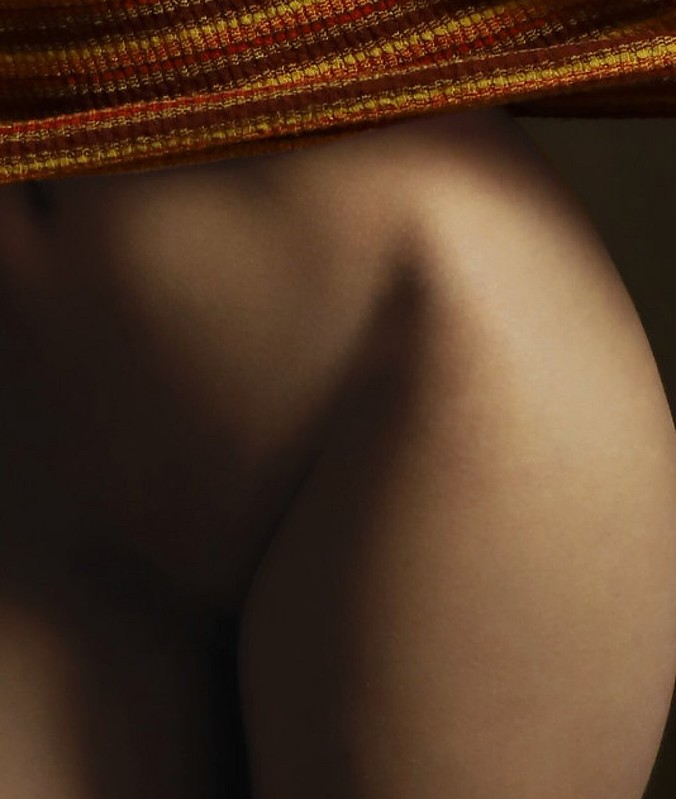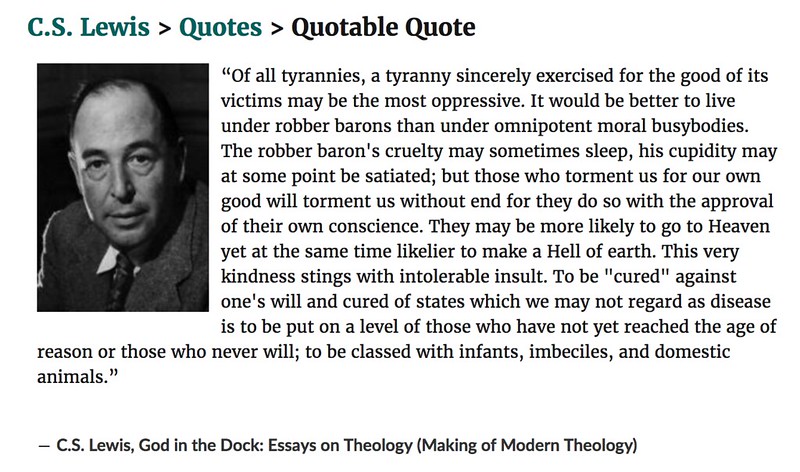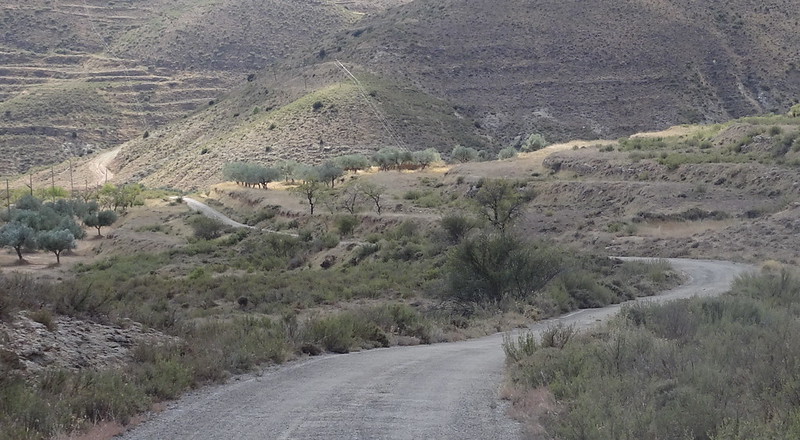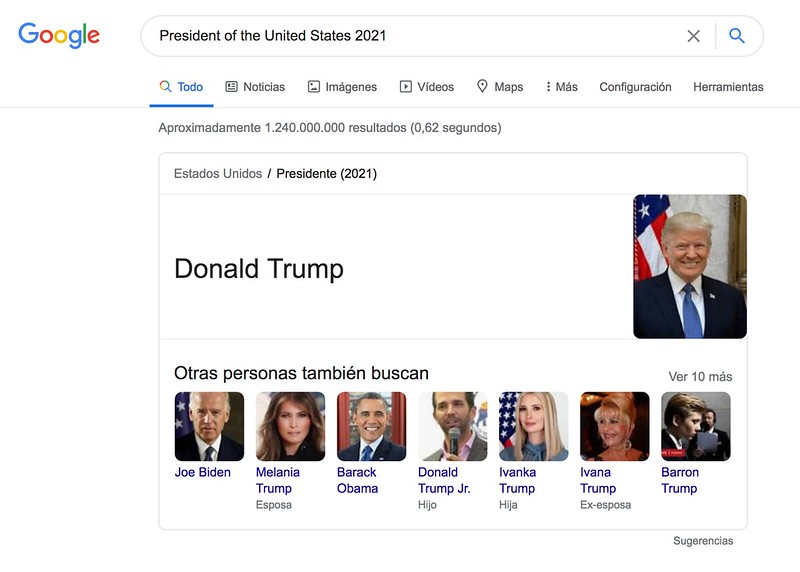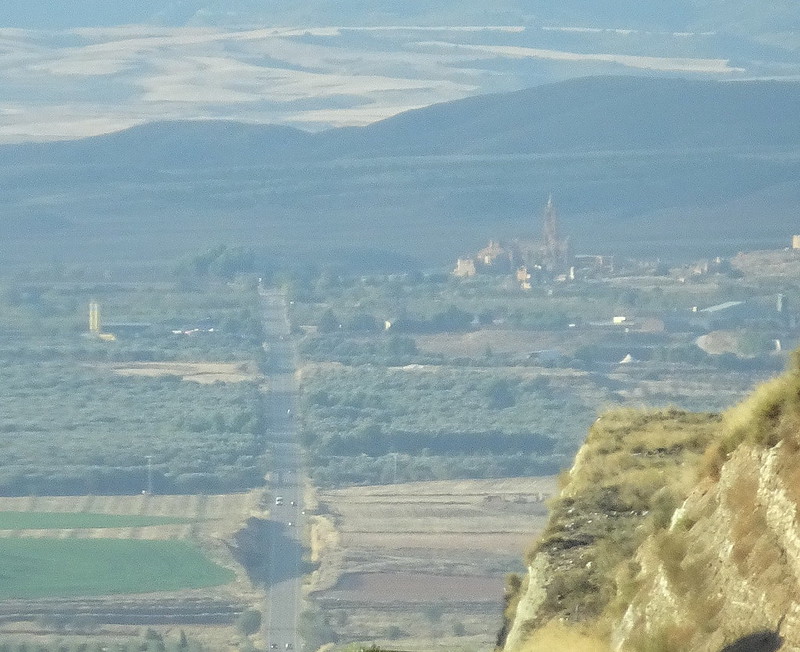jueves, 31 de diciembre de 2020
DESACREDITÁNDOSE
TODO EL AÑO LLEVO DENUNCIANDO EL ESCANDALO DEL EXPEDIENTE ROYUELA.
PERO EL AUTÉNTICO ESCÁNDALO ES QUE LOS MEDIOS, Y LA PRENSA, Y LOS POLÍTICOS (Y USTED, HIPÓCRITA LECTOR) LO SILENCIAN.
SIN QUE NADIE PAREZCA CREER QUE CON ESO SE DESACREDITAN.
—oOo—
miércoles, 30 de diciembre de 2020
Expediente Royuela: Fiscal Psicópata
Mi pregunta es:
¿Qué credibilidad merecen los medios de comunicación, teles, radios, políticos y periodistas que ocultan y encubren todo esto?
—oOo—
Fiscal Psicópata
El fiscal Mena es un asesino psicópata despiadado según Expediente Royuela https://t.co/C4qJcafOLA a través de @AnarcolibertadT
— JoséAngelGarcíaLanda (@JoseAngelGLanda) December 30, 2020
Me citan en Turquía
En este artículo de Semantic Scholar:
Tüfekçi, M. Elif. "Yapısalcı Yöntem ve Uygulama Alanları (Structuralism and Its Application)." Online at Semantic Scholar.*
https://pdfs.semanticscholar.org/fcc4/81dc9c1fa1afcb33a3dae8d2ce56c5e81058.pdf
2020
Lingüística y Poética
Me citan en este volumen peruano sobre Lingüística y Poética, en concreto en este capítulo:
Olivares Mauricio, Lady Noelia. "El uso de la segunda persona en la configuración del narrador en los cuentos de Edgardo Rivera Martínez." In Lingüística y Poética. Ed. Eliana Gonzales Cruz and Renato Guizado Yampi. Lima: Universidad de Piura / Academia Peruana de la Lengua, 2018. 195-207. Online at Academia.*
https://www.academia.edu/43459763/
2020
martes, 29 de diciembre de 2020
Posthuman Party
😭 https://t.co/xNQ5xE1Mw3 pic.twitter.com/em4Lc33ap3
— SanglierSympa (@SanglierSympa) December 29, 2020
Carrera de cuatro décadas
El fin de una década más, o el principio de otra, tanto da. Pero estamos más de terminar que de empezar.
El tema es que tras cuarenta años de carrera dándole a la Filología Inglesa (empecé a finales de 1979 por ponerle una fecha) estoy muy satisfactoriamente posicionado a nivel mundial:
—y esto muchas veces este año y los últimos años, semana tras semana, en Literatura, Filología, Lingüística, o Análisis del Discurso.
También tuve un aviso de ResearchGate (no sé si se los envían a todo el
mundo para endulzarnos la vida) de que una semana, una y no más, hace
poco fui el autor más leído de España. De la España de ResearchGate,
claro.
En Academia también tengo muchas lecturas y estaba en la categoría superior por porcentaje, antes de que la suprimiesen (: / ):
En el SSRN también estoy en los porcentajes más altos, y todavía más altos, de hecho, si nos ceñimos a mi disciplina lingüística o filológica o de estudios literarios.
Triangulando estos tres repositorios, que son los que más uso y que son los más usados del mundo, me declaro oficialmente satisfecho con la carrera que he llevado, y aquí le pongo fin simbólico. Hice lo que pude con las herramientas que me tocaron. Mucho más que lo que he hecho no haré; a partir de ahora que hablen mis escritos por mí, y ya se sabe, our words are ours, their ends none our own.
—oOo—
lunes, 28 de diciembre de 2020
ASEM: An Eastern Tale
OLIVER GOLDSMITH
(1728-1774)
 |
ASEM
An Eastern Tale
Where Tauris lifts its head above the storm, and presents nothing to the sight of the distant traveller but a prospect of nodding rocks, falling torrents, and all the variety of tremendous nature; on the bleak bosom of this frightful mountain, secluded from society, and detesting the ways of men, lived Asem the Man-Hater.
Asem had spent his youth with men, had shared in their amusements, and had been taught to love his fellow-creatures with the most ardent affection; but, from the tenderness of his disposition, he exhausted all his fortune in relieving the wants of the distressed. The petitioner never sued in vain; the weary traveller never passed his door; he only desisted from doing good when he had no longer the power of relieving.
For a fortune thus spent in benevolence he expected a grateful return from those he had formerly relieved, and made his application with confidence of redress: the ungrateful world soon grew weary of his importunity; for pity is but a short-lived passion. He soon, therefore, began to view mankind in a very different light from that in which he had before beheld them: he perceived a thousand vices he had never before suspected to exist; wherever he turned, ingratitude, dissimulation, and treachery, contributed to increase his detestation of them. Resolved, therefore, to continue no longer in a world which he hated, and which repaid his detestation with contempt, he retired to this region of sterility, in order to brood over his resentment in solitude, and converse with the only honest heart he knew—namely, with his own.
A cave was his only shelter from the inclemency of the weather; fruits, gathered with difficulty from the mountain's side, his only food; and his drink was fetched, with danger and toil, from the headlong torrent. In this manner he lived, sequestered from society, passing the hours in meditation, and sometimes exulting that he was able to live independent of his fellow-creatures.
At the foot of the mountain an extensive lake displayed its glassy bosom, reflecting on its broad surface the impending horrors of the mountain. To this capacious mirror he would sometimes descend, and, reclining on its steep banks, cast an eager look on the smooth expanse that lay before him. "How beautiful," he often cried, "is Nature! How lovely even in her wildest scenes! How finely contrasted is the level plain that lies beneath me with yon awful pile that hides its tremendous head in the clouds! But the beauty of these scenes is no way comparable with their utility; hence an hundred rivers are supplied, which distribute health and verdure to the various countries through which they flow. Every part of the universe is beautiful, just, and wise; but man, vile man, is a solecism in nature, the only monster in the creation. Tempests and whirlwinds have their use; but vicious, ungrateful, man is a blot in the fair page of universal beauty. Why was I born of that detested species, whose vices are almost a reproach to the wisdom of the divine Creator? Were men entirely free from vice, all would be uniformity, harmony, and order. A world of moral rectitude should be the result of a perfectly moral agent. Why, why then, O Alla! must I be thus confined in darkness, doubt, and despair?"
Just as he uttered the word despair, he was going to plunge into the lake beneath him, at once to satisfy his doubts, and put a period to his anxiety, when he perceived a most majestic being walking on the surface of the water, and approaching the bank on which he stood. So unexpected an object at once checked his purpose; he stopped, contemplated, and fancied he saw something awful and divine in his aspect.
"Son of Adam," cried the Genius, "stop thy rash purpose; the Father of the Faithful has seen thy justice, thy integrity, thy miseries, and hath sent me to afford and administer relief. Give me thine hand, and follow without trembling wherever I shall lead: in me behold the Genius of Conviction, kept by the great Prophet, to turn from their errors those who go astray, not from curiosity, but a rectitude of intention. Follow me and be wise."
Asem immediately descended upon the lake, and his guide conducted him along the surface of the water, till, coming near the centre of the lake, they both began to sink; the waters closed over their heads; they descended several hundred fathoms, till Asem, just ready to give up his life as inevitably lost, found himself, with his celestial guide, in another world, at the bottom of the waters, where human foot had never trod before. His astonishment was beyond description, when he saw a sun like that he had left, a serene sky over his head, and blooming verdure under his feet.
"I plainly perceive your amazement," said the Genius; "but suspend it for a while. This world was formed by Alla, at the request, and under the inspection, of our great Prophet, who once entertained the same doubts which filled your mind when I found you, and from the consequence of which you were so lately rescued. The rational inhabitants of this world are formed agreeable to your own ideas; they are absolutely without vice. In other respects it resembles your earth, but differs from it in being wholly inhabited by men who never do wrong. If you find this world more agreeable than that you so lately left, you have free pemission to spend the remainder of your days in it; but permit me for some time to attend you, that I may silence your doubts, and make you better acquainted with your company and your new habitation."
"A world without vice! Rational beings without immorality!" cried Asem, in a rapture; "I thank thee, O Alla! who hast at length heard my petitions: this, this indeed will produce happiness, ecstasy, and ease. Oh, for an immortality, to spend it among men who are incapable of ingratitude, injustice, fraud, violence, and a thousand other crimes that render society miserable!"
"Cease thine exclamations," replied the Genius. "Look around thee: reflect on every object and action before us, and communicate to me the result of thine observations. Lead wherever you think proper, I shall be your attendant and instructor." Asem and his companion travelled on in silence for some time, the former being entirely lost in astonishment; but at last recovering his former serenity, he could not help observing, that the face of the country bore a near resemblance to that he had left, except that this subterranean world still seemed to retain its primeval wildness.
"Here," cried Asem, "I perceive animals of prey and others that seem only designed for their subsistence; it is the very same in the world over our heads. But had I been permitted to instruct our Prophet, I would have removed this defect, and formed no voracious or destructive animals, which only prey on the other parts of the creation."
—"Your tenderness for inferior animals is, I find, remarkable," said the Genius, smiling. "But, with regard to meaner creatures, this world exactly resembles the other, and, indeed, for obvious reasons; for the earth can support a more considerable number of animals by their thus becoming food for each other, than if they had lived entirely on her vegetable productions. So that animals of different natures thus formed, instead of lessening their multitude, subsist in the greatest number possible. But let us hasten on to the inhabited country before us, and see what that offers for instruction."
They soon gained the utmost verge of the forest, and entered the country inhabited by men without vice; and Asem anticipated in idea the rational delight he hoped to experience in such an innocent society. But they had scarcely left the confines of the wood, when they beheld one of the inhabitants flying with hasty steps, and terror in his countenance, from an army of squirrels, that closely pursued him. "Heavens!" crued Asem, "Why does he fly? What can he fear from animals so contemptible?" He had scarcely spoken, when he perceived two dogs pursuing another of the human species, who with equal terror and haste attempted to avoid them. "This," cried Asem to his guide, "is truly surprising; nor can I conceive the reason for so strange an action." —"Every species of animals," replied the Genius, "has of late grown very powerful in this country; for the inhabitants, at first, thinking it unjust to use either fraud or force in destroying them, they have insensibly increased, and now frequently ravage their harmless frontiers."—"But they should have been destroyed," cried Asem; "you see the consequence of such neglect."—"Where is, then, that tenderness you so lately expressed for subordinate animals?" replid the Genius, smiling; "you seem to have forgot that branch of justice."—"I must acknowledge my mistake," returned Asem; "I am now convinced that we must be guilty of tyranny and injustice to the brute creation, if we would enjoy the world ourselves. But let us no longer observe the duty of man to these irrational creatures, but survey their connections with one another."
As they walked farther up the country, the more he was surprised to see no vestiges of handsome houses, no cities, nor any mark of elegant design. His conductor, perceiving his surprise, observed, that the inhabitants of this new world were perfectly content with their ancient simplicity; each had a house, which, though homely, was sufficient to lodge his little family; they were too good to build houses, which could only increase their own pride, and the envy of the spectator: what they built was for convenience, and not for show. "At least, then," said Asem, "they have neither architects, painters, nor statuaries, in their society; but these are idle arts, and may be spared. However, before I spend much more time here, you should have my thanks for introducing me into the society of their wisest men: there is scarce any pleasure to me equal to a refined conversation; there is nothing of which I am so much enamoured as wisdom."—"Wisdom!" replied his instructor; "how ridiculous! Wee have no wisdom here, for we have no occasion for it; true wisom is only a knowledge of our own duty, and the duty of others to us; but of what use is such wisdom here? Each intuitively performs what is right in himself, and expects the same from others. If by wisdom you should mean vain curiosity and empty speculation, as such pleasures have their origin in vanity, luxury, or avarice, we are too good to pursue them."—"All this may be right," says Asem: "but methinks I observe a solitary disposition prevail among the people; each family keeps separately within their own precincts, without society, or without intercourse."—"That indeed, is true," replied the other; "here is no established society, nor should there be any; all societies are made either though fear or friendship: the people we are among are too good to fear each other; and there are no motives to private friendship, where all are equally meritorious."—"Well, then," said the sceptic, "as I am to spend my time here, if I am to have neither the polite arts, nor wisdom, nor friendship, in such a world, I should be glad at least of an easy companion, who may tell me his thoughts, and to whom I may communicate mine."—"And to what purpose should either do this?" says the Genius: "flattery or curiosity are vicious motives, and never allowed of here; and wisdom is out of the question."
"Still, however," said Asem, "the inhabitants must be happy; each is contented with his own possessions, nor avariciously endavours to heap up more than is necessary for his own subsistence; each has therefore leisure for pitying those that stand in need of his compassion." He had scarce spoken, when his ears were assaulted with the lamentations of a wretch who sat by the way-side, and in the most deplorable distress seemed gently to murmur at his own misery. Asem immediately ran to his relief, and found him in the last stage of a consumption. "Strange," cried the son of Adam, "that men who are free from vice should thus suffer so much misery without relief!"—"Be not surprised," said the wretch who was dying: "would it not be the utmost injustice for beings who have only just sufficient to support themselves, and are content with a bare subsistence, to take it from their ownmouths to put it into mine? They never are possessed of a single meal more than is necessary, and what is barely necessary cannot be dispensed with."—"They should have been supplied with more than is necessary," cried Asem—"and yet I contradict my own opinion but a moment before—all is doubt, perplexity, and confusion. Even the want of ingratitude is no virtue here, since they never received a favour. They have, however, another excellence yet behind; the love of their country is still, I hope, one of their darling virtues."—"Peace, Asem," replied the Guardian, with a countenance not less severe than beautiful; "nor forfeit all thy pretensions to wisdom: the same selfish motives by which we prefer our own interests to that of others, induce us to regard our country preferably to that of another. Nothing less than universal benevolence is free from vice, and that you see is practised here."—"Strange!" cries the disappointed pilgrim, in an agony of distress; "what sort of a world am I now introduced to? There is scarce a single virtue, but that of temperance, which they practise: and in that they are no way superior to the very brute creation. There is scarce an amusement which they enjoy; fortitude, liberality, friendship, wisdom, conversation, and love of country, all are virtues entirely unknown here: thus it seems that to be unacquainted with vice is not to know virtue. Take me, O my Genius, back to that very world which I have despised: a world which has Alla for its contriver is much more wisely formed than that which has been projected by Mahomet. Ingratitude, contempt, and hatred, I can now suffer, for perhaps I have deserved them. When I arraigned the wisdom of Providence, I only showed my own ignorance; henceforth let me keep from vice myself, and pity it in others."
He had scarce ended, when the Genius, assuming an air of terrible complacency, called all his thunders around him, and vanished in a whirlwind. Asem, astonished at the terror of the scene, looked for his imaginary world; when, casting his eyes around, he perceived himself in the very situation, and in the very place, where he first began to repine and despair; his right foot had been just advanced to take the fatal plunge, nor had it been yet withdrawn; so instantly did Providence strike the series of truths just imprinted on his soul. He now departed from the water-side in tranquillity; and leaving his horrid mansion, travelled to Segestan, his native city, where he diligently applied himself to commerce, and put in practice the wisdom he had learned in solitude. The frugality of a few years soon produced opulence; the number of his domestics increased; his friends came to him from every part of the city; nor did he receive them with disdain; and a youth of misery was concluded with an old age of elegance, affluence, and ease.
—oOo—
Talibanes catalanes
Antonio Robles: "La enseñanza pública en Cataluña es un nido de talibanes sin capucha" | El Catalán#HablamosEspañol#StopAdoctrinamiento https://t.co/Jidia5u2EJ
— Hablamos español (@HablamosE) December 28, 2020
Sobre el bombazo de Tennessee
Twitter nos tiene vigilados y se niega a pasar información del bando de Trump. Esta vez en lo relativo al bombazo de Tennessee, que forma parte de una guerra entre servicios secretos USA, una guerra fría que se está calentando por momentos.
Aquí está el enlace: https://trump.news/2020-12-27-situation-update-dec-27th-nashville-data-wipeout.html
—oOo—
domingo, 27 de diciembre de 2020
Álbum 2020/1
Esto que precede no es el álbum; es una foto del álbum. El álbum está aquí:
https://www.flickr.com/photos/garciala/49329061633/in/album-72157717565094186
Cada vez menos fotos y más refotos. Aunque, claro, muchas fotos son refotos, y muchas refotos son fotos. Empezando por mi manía de duplicar y refotear todas las fotos en Flickr. Las refotos, gracias a Dios, de momento no las duplico ni las refoteo, generalmente hablando. Ésta, por ejemplo, es una foto, refoto, o captura de pantalla de mi álbum de 2020:
De momento incluye unas 700 fotos, subidas de enero a junio de 2020. A principios del 2021, completado el infausto año, completaré el álbum con fotos del segundo semestre, aunque este álbum ya tiene seguramente demasiadas fotos, y eso que aseguro que soy selectivo. Hay quien dice que no, pero claro, también es que hay gente que le sobran todas las fotos, sobre todo las de los demás.
De las refotos ni hablamos: aún no he encontrado una persona que no le sobren, y eso que yo persisto en mi idea de que es una modalidad de la fotografía si no legal, al menos sí legítima.
—oOo—
Audrey's Boyfriend
Hoy, en "Esto tienes que verlo aunque no te gusten los musicales", la presentación de Steve Martin como el novio un pelín retorcido de Audrey en la genial 'La tienda de los horrores'. pic.twitter.com/V0Z02ddVzA
— Manuel de BCN (@Manuel_de_BCN) December 27, 2020
sábado, 26 de diciembre de 2020
El loco, el fanático y el terrorista
El loco, el fanático y el terrorista.#SoloQuedaVOX pic.twitter.com/UOaaOT1ysJ
— Hemeroteca Film (@HemerotecaFilm) December 18, 2020
Technologies of Time Manipulation
Me citan, y mucho, en este artículo narratológico sobre tecnologías de manipulación del tiempo:
González García, Javier. (U of Guanajuato, Mexico, jr2000x@yahoo.es). "New Technologies of Time Manipulation." Rupkatha Journal on Interdisciplinary Studies in Humanities 10.2 (2018).*
https://dx.doi.org/10.21659/rupkatha.v10n2.01
http://rupkatha.com/V10/n2/v10n201.pdf
2020
Tecnologías de manipulación del tiempo
—oOo—
viernes, 25 de diciembre de 2020
Fictionality, Factuality
Me citan en este artículo narratológico:
Browse, Sam (Sheffield Hallam U), Alison Gibbons (Sheffield Hallam U), and Matti Hatavara (Tampere U). "Real Fictions: Fictionality, Factuality and Narrative Strategies in Contemporary Storytelling." Narrative Inquiry 29.2 (2019): 245-67.
https://doi.org/10.1075/ni.19025.bro
https://www.jbe-platform.com/content/journals/10.1075/ni.19025.bro
Online at Trepo (Tampere U).*
https://trepo.tuni.fi/bitstream/handle/10024/117879/real_fictions_fictionality_factuality_2019.pdf
2020
La Traición de Mike Pence a Donald Trump Despeja Muchas Dudas de lo que sucede
... dice el Arconte. Bueno, yo lo cito pero no le doy ni mucha credibilida, ni poca siquiera.
La economía española en dos tuits
O: La gestión de Sánchez, en dos tuits. Da la cosa para más, pues el desastre es aún mayor, pero dejémoslo en dos tuits que dan el panorama general.
GDP growth, 2020.
— The Spectator Index (@spectatorindex) December 25, 2020
Norway: -2.8%
Ireland: -3%
Poland: -3.6%
Russia: -4.1%
Denmark: -4.5%
Sweden: -4.7%
Switzerland: -5.3%
Netherlands: -5.4%
Germany: -6%
Hungary: -6.1%
Austria: -6.7%
Belgium: -8.3%
UK: -9.8%
France: -9.8%
Portugal: -10%
Italy: -10.6%
Spain: -12.8%
(Source: IMF)
Youth Unemployment Rate 👨
— Informal Economy (@EconomyInformal) December 20, 2020
Australia🇦🇺: 16.3
Belgium🇧🇪: 20.3
Canada🇨🇦: 18.2
Colombia🇨🇴: 20.2
Denmark🇩🇰: 10.6
EU🇪🇺: 17.4
France🇫🇷: 21
Germany🇩🇪: 6
Greece🇬🇷: 33.3
Italy🇮🇹: 26.2
Japan🇯🇵: 5.6
Portugal🇵🇹: 24.9
Spain🇪🇸: 38.9
Sweden🇸🇪: 23.7
Turkey🇹🇷: 23.2
UK🇬🇧: 16.6
USA🇺🇸: 12.7@OECD pic.twitter.com/lRJxwK2xem
Sin embargo a este individuo —diría este sujeto, pero es que anda suelto— hay que echarlo ahora y siempre, urgentemente, no ya por lo que ha hecho, sino por lo que va a hacer.
—oOo—
Aplausos por Navidad
Mi deseo de Navidad para todos los diputados que votasteis a favor de la #Eutanasia es que la disfrutéis cuando os llegue la hora.
— Monsieur de Sans-Foy (@MonsieurSansFoy) December 25, 2020
Todos y cada uno.
Cuando los achaques, la soledad, la desesperanza y el interés de los buitres que os rodeen os arrojen a ella, volveréis a aplaudir pic.twitter.com/qSvYe5yzNa
Omnipotent Moral Busybodies
El rey insuficiente
Felipe VI, mirada triste y rostro de temor, sometido y acosado por el Gobierno y por quienes desean la destrucción de España. Mensaje institucional correcto, pero ajeno a los graves problemas nacionales; deconstrucción de España, enemigos internos, demografía... Sin esperanza pic.twitter.com/dw0xYeCTHy
— Jesús Palacios (@jesuspalaciosjp) December 25, 2020
El Rey ignora la cuestión de la legitimidad
—oOo—
jueves, 24 de diciembre de 2020
RIGGED ELECTION!
— Donald J. Trump (@realDonaldTrump) December 24, 2020
— Donald J. Trump (@realDonaldTrump) December 24, 2020
—oOo—
S.O.S. NIEVE PIRINEOS
CONTRA LOS ABUSOS DE LA PARTITOCRACIA PREPOTENTE Y DEL DESPOTISMO SANITARIO:
SOS NIEVE PIRINEOS pic.twitter.com/cc6WwUUYMm
— David Arranz 🇪🇸 (@DavidArranzVox) December 23, 2020
miércoles, 23 de diciembre de 2020
As Tears Go By (2)
Una canción que canturreaba yo en 1989. Y también esta mañana sentado en la plaza, treinta y años después.
Estereotipos del sarraceno
Me citan en este artículo sobre los estereotipos del
sarraceno, moro, árabe o musulmán. (Conozco por cierto a una Fatima
Zohra, que ya es casualidad, pero no sé si se trata de la misma
persona):
Lalaoui-Chiali, Fatima Zohra. "Stéréotypes, écrits coloniaux et postcoloniaux: Le cas d'Algérie." Itinéraires 2010-1 (2010).*
DOI : 10.4000/itineraires.2125
https://journals.openedition.org/itineraires/2125
http://journals.openedition.org/itineraires/pdf/2125
2020
El escrito citado es en realidad una sección de este artículo sobre unos cantares de gesta franceses:
_____. "Le traitement des personnages dans le Couronnement de Louis et le Pèlerinage de Charlemagne." Online at Net Sight de José Angel García Landa. 2004. 2020.*
Internet Archive:2020
—oOo—
La socialización corporal
Un artículo de psicología social y dramatística del cuerpo donde me citan a cuenta de Goffman:
Fraga, Eugenia. "Cuerpos naturales, cuerpos sociales: La socialización corporal según Erving Goffman." Cartografías del Sur 2.4 (Oct. 2016): 60-74. (Hacia una teoría social del cuerpo, ed. Eduardo Galak).
http://cartografiasdelsur.undav.edu.ar/index.php/CdS/article/download/51/48
Online at Academia.*
https://www.academia.edu/29798855/
2017
The Structure of Repetition in the Cinema
Un artículo narratológico de Poetics Today en el que me citan—repetidamente:
Shaham, Inbar. (Open U of Israel, Dpt. of Literature, Language, and the Arts). "The Structure of Repetition in the Cinema: Three Hollywood Genres." Poetics Today 34.4 (2013): 437-518.* (Plans, heist, adventures).
DOI: 10.1215/03335372-2389578
http://poeticstoday.dukejournals.org/content/34/4/437.refs https://read.dukeupress.edu/poetics-today/article-pdf/34/4/437/459263/PT344_01Shaham_Fpp.pdf
Online at Semantic Scholar.*
https://pdfs.semanticscholar.org/9c51/5f977ef6468a6f5d047bdfe1e64284c781d5.pdf
2020
—oOo—
martes, 22 de diciembre de 2020
Lessing, Doris
From The Salon.com Guide to Contemporary Authors (2000)
Lessing, Doris (1919-[2013])
b. Kermanshah, Persia (now Iran) [Premio Príncipe de Asturias 2001, Nobel Prize for Literature 2007]
FICTION: The Grass is Singing (1950), This Was the Old Chief's Country (stories, 1952), Martha Quest (Children of Violence series, 1952), A Proper Marriage (Children of Violence series, 1954), Five: Short Novels (1955), Retreat to Innocence (1956), The Habit of Loving (stories, 1958), *The Golden Notebook (1962), A Man and Two Women (stories, 1963), African Stories (1964), Landlocked (Children of Violence Series, 1966), The Four-Gated City (Children of Violence sereis, 1969), Briefing for a Descent Into Hell (1971), The Temptation of Jack Orkney and Other Stories ([republished as Volume 1 of Collected Stories, 1978] 1972), The Summer Before the Dark (1973), The Memoirs of a Survivor (1975), To Room Nineteen (Volume 2 of Collected Stories, 1978), The Diaries of Jane Somers (including The Diary of a Good Neighbor (1983)and If the Old Could (1984), originally published under the pseudonym Jane Somers], 1984), The Good Terrorist (1985), The Fifth Child (1988), The Real Thing: Stories and Sketches (1992), Canopus in Argos: Arvhives ([contains Colonized Planet V, Shikasta (1979), The Marriage between Zones Three, Four, and Five (1980), The Sirian Experiments: The Report of Ambien II, of the Five (1981), The Making of the Representative for Planet 8 (1982), Documents Relating to the Sentimental Agents in the Volyen Empire (1983)], 1992), Playing the Game: Graphic Novel (1993), Winter in July (Stories, 1993), Love, Again (1996), Mara and Dann (1999), [The Sweetest Dream, 2001, The Cleft, 2007]
NONFICTION: Going Home (1957), In Pursuit of the English (1961), Particularly Cats (1967), A Small Personal Voice: Essays, Reviews, Interviews (1975), Prisons We Choose to Live Inside (1987), The Wind Blows Away Our Words (1987), African Laughter: Four Visits to Zimbabwe (1992), Under My Skin (Volume 1 of My Autobiography, 1949-1962, 1994), Walking in the Shade (Volume 3 of My Autobiography, 1949-1962, 1997), [Time Bites (2004), Alfred and Emily (2008), On Not Winning the Nobel Prize (2007)]
For over half a decade, Doris Lessing has turned her prolific pen to just about every prose form—fiction, autobiography, essays, drama. Yet all of her writing stems from the impulse to lay bare the grid of class, race, and gender relations that governs her middle class characters' lives. Lessing brings the microscopic intensity of George Eliot and the combative sexual consciousness of D. H. Lawrence to bear on English culture, whether the context is the provincially hierarchical "settler" society of Southern Rhodesia in A Proper Marriage or the beleaguered bohemia of "free women" in The Golden Notebook. Lessing's reputation as one of the most important novelists of the post-World War II period rests firmly on her contribution to the grand tradition of English social realism. Yet Lessing herself once dismissed George Eliot, to whom she is so often compared, as "good as far as she goes"; she prefers to claim the more cosmopolitan influence of Tolstoy and Balzac.
Indeed, this apparently most British of writers was thirty years old before she set foot in England or published her first novel. Her upbringing on a farm in Southern Rhodesia (now Zimbabwe) acquainted her more thoroughly with the isolation and racial exploitation of white colonial culture than with an imperial literary heritage. Her formal schooling ended at age fourteen, and in Under My Skin, the first volume of her autobiography, Lessing notes with pride the real accomplishments of her youth: the ability to "set a hen, look after chickens and rabbits, worm dogs and cats, pan for gold, take samples from reefs, cook, sew, use the milk separator and churn butter, go down a mine shaft in a bucket, make cream cheese and ginger beer . . . drive the car, shoot pigeons and guineafowl for the pot, [and] preserve eggs." By the time she left for London in 1949, she had augmented these accomplishments with two divorces, three children, the obloquy of Communist party membership and anti-apartheid agitation, and the unpublished draft of her first novel.
Colonia race relations, political activism, and the burdens of women have remained her central concerns. Her first novel, The Grass Is Singing, about a farmer's wife drawn into a doomed affair with an African worker, approaches its material from a distance. Lessing infuses a simple plot with the intensity of a Greek tragedy. She portrays the wife's murder by the African, Moses, as the inevitable outcome of male violence and female passivity fostered by white settler culture. Lessing depicts the white experience of colonial Africa more urgently and directly in her five-novel Children of Violence sequence (1953-1969), in which she embeds the sexual, political, and intellectual development of her protagonist, Martha Quest, in a detailed evocation of the communist and progressive political and intellectual life of Rhodesia and London in the 1950s and 1960s.
Anna Wulf, the novelist heroine of Lessing's most celebrated work, The Golden Notebook, continued Martha's quest: political activism, sexual experimentation, maternity, female friendship, and authorship all feed into her struggle for authentic, integrated selfhood. The declarative simplicity of the novel's opening line—"The two women were alone in the London flat"—belies the explosive effect on several generations of women intellectuals struggling to reconcile the life of the mind, the imperatives of the body, and hte gender roles they inherited from the 1950s. But as Lessing herself insists, The Golden Notebook achieved innovations bneyond its contribution to what she dismissively terms "the sex war." The novel combines omniscient observation, Anna's own musings in four different journals, and sections from Anna's novel manuscript. These interwoven narratives capture both an individual consciousness and a particular cultural moment with something of the multilayered depth of James Joyce's Ulysses.
Public events shape private histories in Lessing's novels, often violently. In The Good Terrorist, for example, middle-class Alice Mellings keeps house for a pseudo-communist cadre until a too-successful bombing destroys her illusion of control. In the chilling The Fifth Child, terror emerges from the bosom of the family, when Harriet Lovatt gives birth to the sociopathic Ben, the embodiment of a disaffected savagery that, Lessing suggests, will inherit the urban future. Lessing anatomizes a less dramatic, but perhaps more pervasive, anguish in The Diary of a Good Neighbor, If the Old Could . . . , and Love, Again, in which women whose familial nad productive relationships have passed away confront the isolation of aging.
Lessing's scary genius lies in her ability to bring her readers face-to-face with an unadorned reflection of some of our more depressing, but all too human, features. At the same time, her realism has always coexisted with a tendency towards mysticism. Her novels of the 1970s compellingly combine a surface of social and geographic detail with journeys into an inner space that Lessing has described, in The Real Thing, as "so much more intelligent than the slow, lumbering, daylike self." In the haunting Memoirs of a Survivor, for example, worlds separated by time and space interpe etrate through the vision of the unnamed female narrator, enabling her to save herself and her companions from extinction. But when Lessing leaves humanity entirely behind, as she does in the science fiction sequence Canopus in Argos: Archives (1979-1983), her depictions of warring galactic empires lack the individuality and emotional insight she brings to earthly society. In Lessing's most recent novel, Mara and Dann, she returns once again to the theme of earthly apocalypse, with human, if visionary, protagonists.
In Under My Skin, Lessing describes her long-ago attempts to explain to her young children her departure from their lives: "[I told them] I was going to change this ugly world, they would live in a beautiful world where there would be no race hatred, injustice, and so forth . . . One day they would thank me for [leaving] . . . I was absolutely sincere. There isn't much to be said for sincerity, in itself."
It is typical of Lessing to emphasize the limits of good intentions, even her own. Yet in doing so, she paradoxically underlines her dedication to a more rigorous sincerity, a vision as stripped of illusion as her art can make it.
See Also: Writers who share Lessing's unsentimental vision of contemporary mores include Margaret Atwood, Diane Johnson, and Alison Lurie.
—Laura Morgan Green
lunes, 21 de diciembre de 2020
domingo, 20 de diciembre de 2020
Turismo Turco me citan
Sobre la experiencia inmersiva en el turismo:
Dogan, Evinc (Tourism Faculty, Akdeniz U, Turkey) and M. Hamdi Kan (Architecture & Urban Planning Dpt., Serik Gülsün-Süleyman Süral Vocational School, Akdeniz U, Turkey). "Bringing Heritage Sites to Life for Visitors: Towards a Conceptual Framework for Immersive Experience." Advances in Hospitality and Tourism Research (AHTR) 8.1 (2020): 76-99.*
DOI: 10.30519/ahtr.630783
Akdeniz U Tourism Faculty
Online at Academia.*
https://www.academia.edu/43316812/
2020
—oOo—



